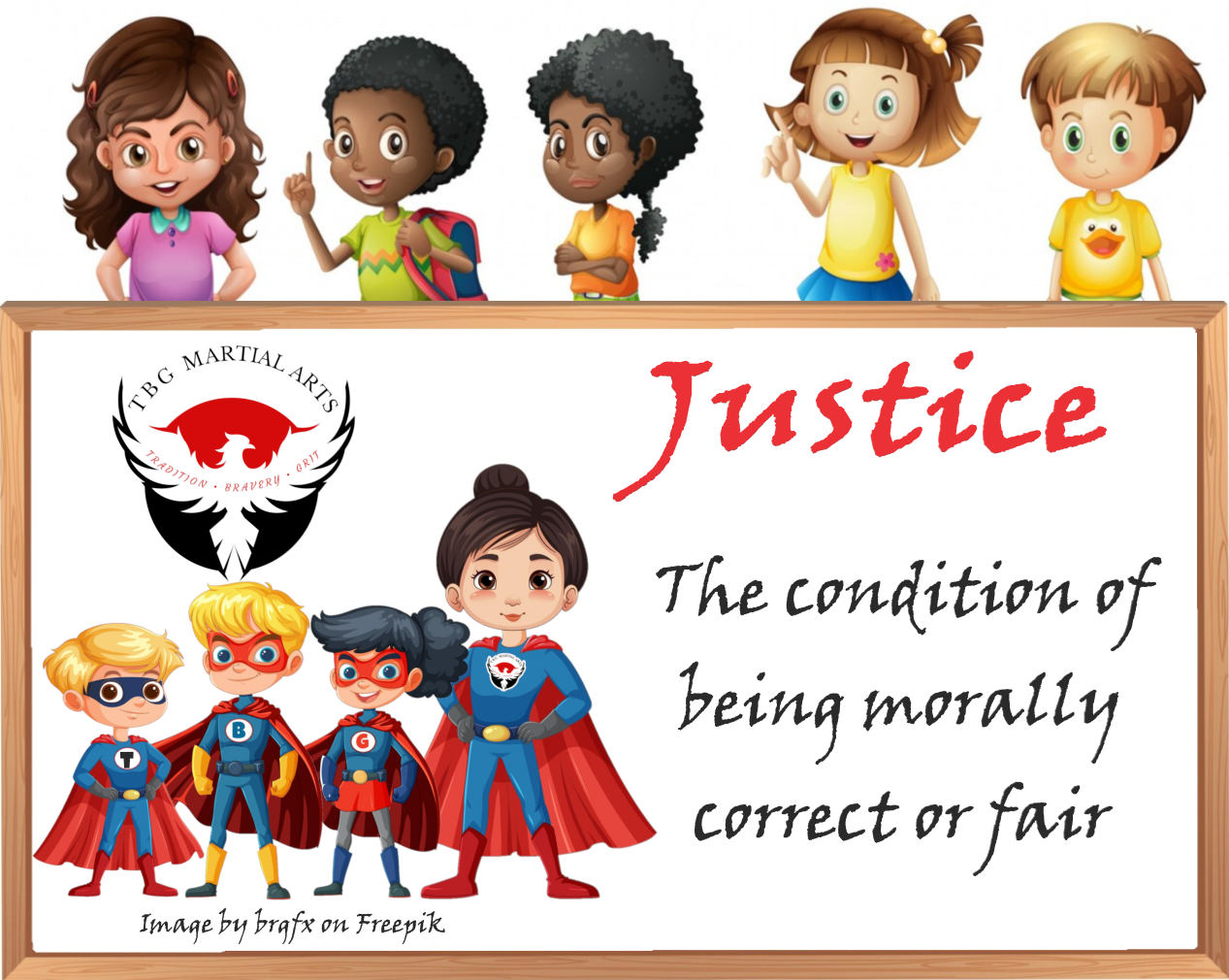Word of the Week #44

Justice:
Building Character Beyond the Mat
Martial arts is often viewed as a physical discipline, one that teaches self-defense and physical fitness. However, the benefits of martial arts extend far beyond the mat. At its core, martial arts is a practice deeply rooted in ethical and moral values, including a profound sense of justice. Here's how martial arts can shape individuals into justice-minded citizens.
Cultivating Respect and Integrity
One of the first lessons in any martial arts class is respect. Students are taught to bow to their instructors, peers, and even the training space. This act of respect extends beyond the dojo and becomes a way of life. By consistently practicing respect, students learn to value others and treat them with dignity, which is a cornerstone of justice.
Promoting Discipline and Self-Control
Discipline is fundamental in martial arts. Training requires rigorous practice, adherence to rules, and self-control. This discipline translates into making just and fair decisions. When faced with challenges or conflicts, martial artists are more likely to approach situations thoughtfully and ethically, rather than reacting impulsively.
Encouraging Empathy and Understanding
Martial arts philosophies often emphasize understanding and empathy. Instructors teach students to see from others' perspectives, whether it's understanding an opponent's moves or considering the feelings of a fellow student. This empathy fosters a sense of justice, as students become more aware of the impact of their actions on others and strive to act fairly and compassionately.
Building a Sense of Community and Responsibility
Martial arts schools often function as tight-knit communities where everyone supports each other. This sense of community instills a feeling of responsibility towards others. Students learn that their actions affect the group and that they have a duty to contribute positively. This collective responsibility reinforces the principles of justice and fairness within and outside the dojo.
Teaching Fair Competition and Honor
Competitions in martial arts are governed by strict rules and a code of honor. Participants are expected to compete fairly, respect their opponents, and accept outcomes with grace. These experiences teach students the value of fair play and integrity, reinforcing the idea that justice is about doing the right thing, even when it's difficult.
Fostering Conflict Resolution Skills
Martial arts training includes techniques for de-escalation and non-violent conflict resolution. Students learn to defend themselves while minimizing harm to others. This approach to conflict fosters a sense of justice, as it encourages finding peaceful solutions and protecting the well-being of all parties involved.
Martial arts is more than just a physical exercise; it's a comprehensive discipline that instills core values like respect, discipline, empathy, community, fair competition, and conflict resolution. By internalizing these principles, martial artists develop a deep sense of justice that guides their actions both inside and outside the dojo. This holistic approach to training shapes individuals into conscientious, justice-minded citizens who contribute positively to their communities.
Have Questions?
Thank you!
A member of our staff will be contacting you soon. Can't wait to see you on the mat!

